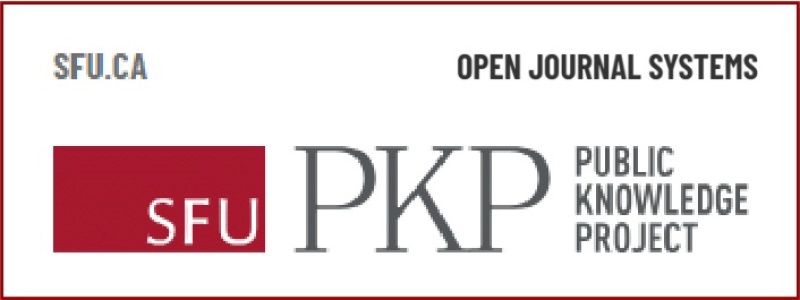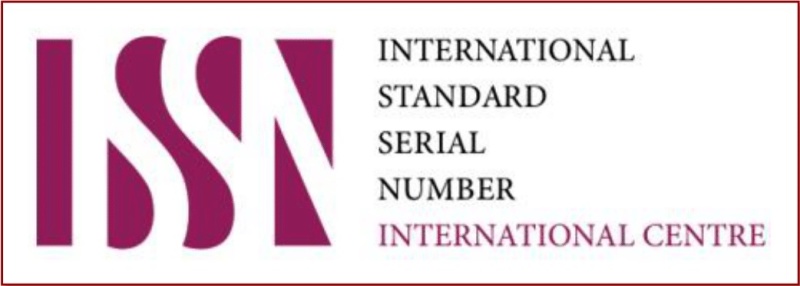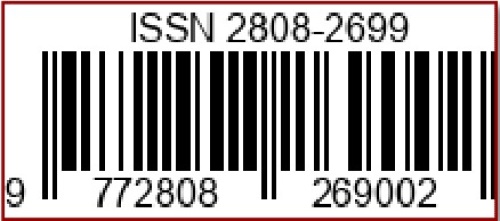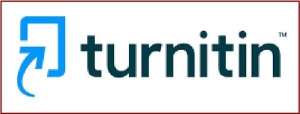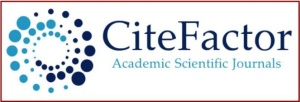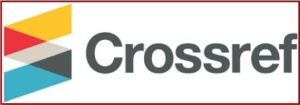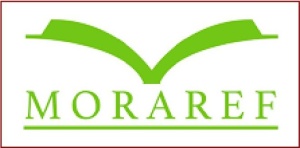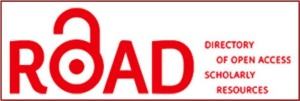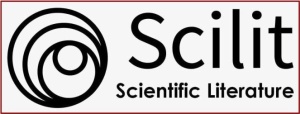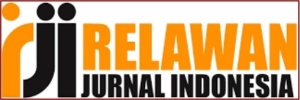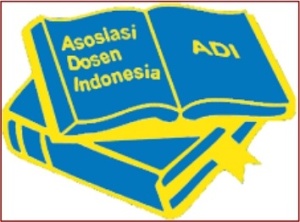Pengelolaan Limbah Domestik di Dinas Lingkungan Hidup Kabupaten Lombok Timur
DOI:
https://doi.org/10.36312/educatoria.v5i3.711Keywords:
Compost, Domestic Waste, East Lombok, Waste Management, TPS3RAbstract
The problem of domestic waste in East Lombok Regency continues to increase along with population growth and community economic activities, so it requires an integrated and sustainable management system. This study aims to describe the domestic waste management system managed by the Environment and Forestry Service (DLHK) of East Lombok Regency and analyze the obstacles and development potential towards sustainable management. The research location consists of a domestic waste collection and sorting site, the Ijo Balit Final Processing Site (TPA), as well as the Integrated Waste Management Site (TPST) and TPS3R East Lombok. The research method uses a qualitative descriptive approach through participatory observation, in-depth interviews with DLH field officers and technical officials, as well as analysis of waste management regulations and technical guidelines. The results of the study show that the average daily waste generation reaches ±110 tons, with a composition of about 65% organic waste that has the potential to be processed into compost. Organic waste management is carried out at the Integrated Waste Management Site (TPST) or TPS3R through the stages of sorting, enumerating, aerobic composting, ripening, sieving, and packaging. The compost products produced are used for agricultural activities, reforestation, and productive plant cultivation. The controlled landfill system implemented at the Ijo Balit Landfill is in accordance with the principles of sustainable environmental management because it is equipped with leachate treatment facilities and methane gas capture channels. However, limited infrastructure, an uneven number of TPS3R, and low public awareness are still the main obstacles in effective waste management. This research emphasizes the need to increase infrastructure capacity, community education, and integration of local government and community programs as important strategies to realize effective and sustainable domestic waste management.
Downloads
References
Badan Standardisasi Nasional. (2004). Spesifikasi Kompos dari Sampah Organik Domestik (SNI 19-7030-2004). Jakarta: Badan Standardisasi Nasional.
Burhan, L. I. (2025). Pemanfaatan Limbah Plastik Menjadi Paving Block Ramah Lingkungan melalui Model Service Learning Berbasis Komunitas. Jurnal Pengabdian Masyarakat dan Inovasi Teknologi Tepat Guna, 1(03), 1-11. https://doi.org/10.63982/twm8jc98
Creswell, J. W., & Poth, C. N. (2023). Qualitative Inquiry and Research Design: Choosing Among Five Approaches (5th Ed.). California: Sage Publications.
Febiola, R. R., Setyawati, L. D., Salsabila, V., Zalsa, S. F., Geralfine, H. A., & Arum, D. P. (2024). Sosialisasi Budidaya Maggot Black Soldier Fly (BSF) sebagai Upaya Pengolahan Limbah Organik di Desa Kalipecabean Sidoarjo. Jurnal Pengabdian Masyarakat Bangsa, 2(6), 2145-2154. https://doi.org/10.59837/jpmba.v2i6.1181
Habibi, M. R., & Rodiyah, I. (2025). Strategi Terpadu dalam Pengelolaan Limbah: Temuan di Griyo Mulyo Sidoarjo. Indonesian Journal of Public Policy Review, 26(1), 10-21. https://doi.org/10.21070/ijppr.v26i1.1445
Harmain, U., Harahap, M. A. K., Saragih, J. R., Sembiring, M. J. A., Sembiring, J. P., & Sinaga, A. A. (2025). Implementasi Program Zero Waste dalam Perspektif Ekonomi Hijau: Studi Kasus Kota Pematang Siantar. Jurnal Regional Planning, 7(2), 92-97. https://doi.org/10.36985/z0bb9j21
Islami, R. R., Moelyaningrum, A. D., & Khoiron, K. (2023). Analisis Sistem Pengelolaan Sampah di Tempat Pemrosesan Akhir (TPA) di Kabupaten Lumajang. Jurnal Kesehatan Lingkungan Indonesia, 22(2), 179-188. https://doi.org/10.14710/jkli.22.2.179-188
Kilis, N., Masengi, E. E., & Mokat, J. E. (2024). Pengelolaan Sampah di Dinas Lingkungan Hidup Kota Manado. J-CEKI : Jurnal Cendekia Ilmiah, 3(6), 8581-8597. https://doi.org/10.56799/jceki.v3i6.6161
Kusuma, D. S., & Wibawani, S. (2024). Strategi Pengelolaan Sampah di Super Depo Sutorejo Kota Surabaya. NeoRespublica : Jurnal Ilmu Pemerintahan, 5(2), 929-941. https://doi.org/10.52423/neores.v5i2.276
Ligawa, A., Riogilang, H., & Takaendengan, T. (2025). Evaluasi Kinerja Tempat Pengelolaan Sampah di TPS 3R Cempaka Kelurahan Molas Kota Manado. Tekno, 23(92), 897-904. https://doi.org/10.35793/jts.v23i92.62527
Miles, M. B., Huberman, A. M., & Saldaña, J. (2018). Qualitative Data Analysis: A Methods Sourcebook (4th Ed.). California: Sage Publications.
Nazhim, S., Ningsih, L. M., & Azhari, B. (2025). Kajian Kebutuhan Luas Lahan Tempat Pengelolaan Tempat Pembuangan Akhir (TPA) Sampah Tipe Sanitary Landfill untuk Sampah di Kota Mataram. Trends Research of Environmental Studies, 1(1), 21-26. https://doi.org/10.70716/tres.v1i1.281
Nuruzakiah, A., Azijah, D. N., & Putri, L. D. M. (2024). Pembuangan Akhir Jalupang: Mengupas Keterlibatan Stakeholder dalam Penataan Tempat Pengelolaan Sampah. Innovative : Journal of Social Science Research, 4(4), 454-464. https://doi.org/10.31004/innovative.v4i4.12934
Perdana, A. S., Anindyawati, N., & Novianto, E. D. (2021). Penguatan Tata Kelola TPS 3R Sekar Tanjung dalam Pengelolaan Sampah Organik. Community Development Journal : Jurnal Pengabdian Masyarakat, 2(3), 847-852. https://doi.org/10.31004/cdj.v2i3.2630
Prayuda, R., & Rangkuti, Z. A. (2025). Kapasitas Dinas Lingkungan Hidup dalam Pengelolaan Sampah di Tempat Pemrosesan Akhir (TPA) Kabupaten Labuhanbatu. Ethnography : Journal of Design, Social Sciences and Humanistic Studies, 2(2), 81-92. https://doi.org/10.54373/ethno.v2i2.154
Putra, I. W. S., Dewi, N. D. U., & Widanti, N. P. T. (2025). Pengelolaan Sampah dalam Mendukung Pengembangan Pariwisata Berkelanjutan di Kabupaten Gianyar. Professional : Jurnal Komunikasi dan Administrasi Publik, 12(1), 299-306. https://doi.org/10.37676/professional.v12i1.7951
Saputra, D. (2025). Pemberdayaan Masyarakat dalam Kebijakan Pemerintah Berbasis Komunitas untuk Pengelolaan Sampah Rumah Tangga Kota Parepare. Jurnal Pengabdian Masyarakat, 1(1), 23-35. https://doi.org/10.69623/j-abmas.v1i1.59
Sugiyono, S. (2023). Metode Penelitian Kuantitatif, Kualitatif, dan R&D. Bandung: CV. Alfabeta.
Sunarsih, E., Anggraini, A., Sanusi, A. A., Rosyada, A., Nurhaliza, A. W., Anggraini, J., & Putri, R. E. (2023). Analisis Menurunnya Kualitas Air Sumur Akibat Pembuangan Limbah Rumah Tangga yang Tidak Tepat. Environmental Science Journal : Jurnal Ilmu Lingkungan, 1(2), 68-76. https://doi.org/10.31851/esjo.v1i2.11191
Wahyudin, W., & Dwinanda, A. R. (2025). Perencanaan Perluasan TPA Ijo Balit Kabupaten Lombok Timur dengan Sistem Controlled Landfill. Envirotek : Jurnal Ilmiah Teknik Lingkungan, 16(2), 83-89. https://doi.org/10.33005/envirotek.v16i2.348
Wijayanti, A., Dhokhikah, Y., & Rohman, A. (2023). Analisis Partisipasi Masyarakat terhadap Pengelolaan Sampah di Kecamatan Sumbersari, Kabupaten Jember, Provinsi Jawa Timur. Jurnal Pengelolaan Lingkungan Berkelanjutan (Journal of Environmental Sustainability Management), 7(1), 28-45. https://doi.org/10.36813/jplb.7.1.28-45
Yustikarini, R., Setyono, P., & Wiryanto, W. (2017). Evaluasi dan Kajian Penanganan Sampah dalam Mengurangi Beban Tempat Pemrosesan Akhir Sampah di TPA Milangasri Kabupaten Magetan. In Proceeding Biology Education Conference: Biology, Science, Enviromental, and Learning (pp. 177-185). Surakarta, Indonesia: Program Studi Pendidikan Biologi, Fakultas Keguruan dan Ilmu Pendidikan, Universitas Sebelas Maret.
Downloads
Published
How to Cite
Issue
Section
License
Copyright (c) 2025 Ahmad Jupri, Hari Arya Pratama, Supardiono, Lilik Hidayati, Fadli, & Pahmi Husain

This work is licensed under a Creative Commons Attribution-ShareAlike 4.0 International License.
-
Attribution — You must give appropriate credit, provide a link to the license, and indicate if changes were made. You may do so in any reasonable manner, but not in any way that suggests the licensor endorses you or your use.
-
ShareAlike — If you remix, transform, or build upon the material, you must distribute your contributions under the same license as the original.


